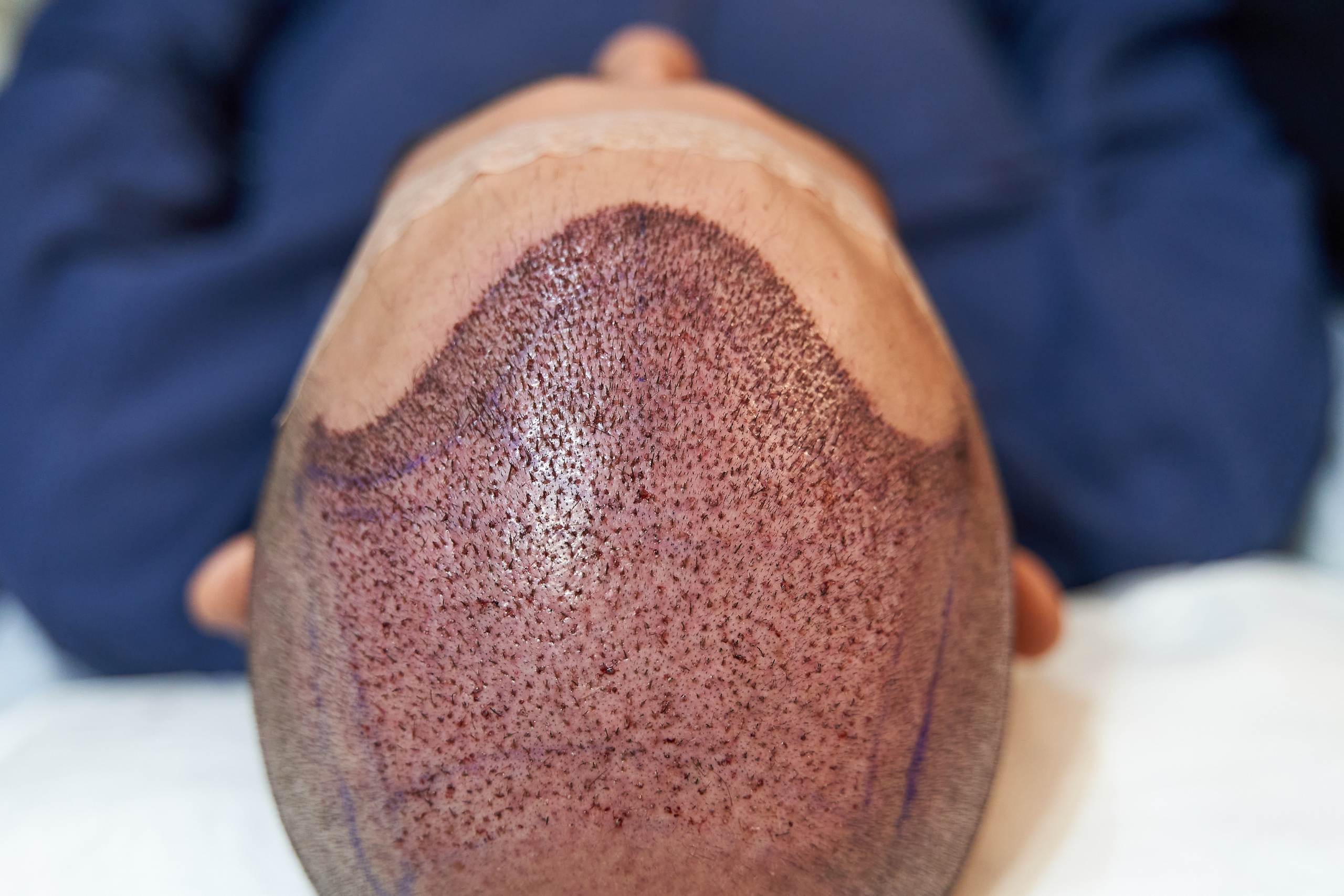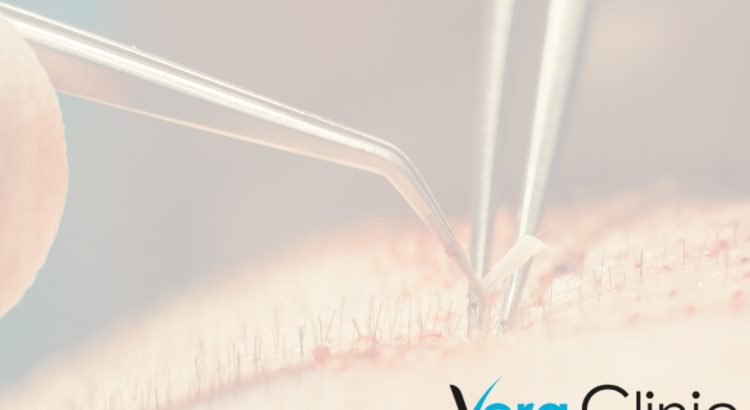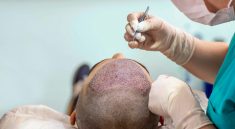In recent years, hair transplants have become a popular remedy for baldness. However, many variables affect the outcome of these processes, creating a complicated web of considerations that must be negotiated. To completely comprehend hair transplant treatments, one must evaluate the aspects that affect their success. Patient features and expectations are key. Age, hair type, and hair loss severity might alter the process. Patient expectations and planned outcomes can affect transplant success. The patient and surgeon must communicate to set reasonable expectations and get satisfying outcomes.
Successful surgery depends on the surgeon’s expertise and ability. Hair transplants demand technical and creative skill. For natural-looking outcomes, the surgeon must grasp graft placement, hairline design, and aesthetics. Donor hair quality and availability matter. Healthy donor hair is needed for hair transplants to succeed. Success depends on donor hair density, texture, and quality.
In this article, we will delve deeper into the complexities of hair transplant procedures and explore the various factors that influence their success. By understanding these factors, individuals considering a hair transplant can make informed decisions and maximize their chances of achieving satisfactory results.
Surgeon’s Skill and Experience
In the world of hair transplantation, the skill and experience of the surgeon play a vital role in determining the success of the procedure. This is particularly true when it comes to finding the best Turkey hair transplant clinics, where skilled surgeons are known to deliver exceptional results.
Hair transplantation is a precise surgical procedure that requires a high level of expertise and technique. A skilled surgeon possesses the necessary knowledge and experience to perform the procedure with utmost precision, ensuring natural-looking results and minimal scarring. They are well-versed in the latest advancements and techniques in the field and are able to adapt them to individual patients’ unique needs.
Furthermore, a surgeon’s experience plays a crucial role in the success of a hair transplant. Experienced surgeons have performed numerous procedures and encountered various scenarios, allowing them to develop refined skills and techniques. They are able to accurately assess each patient’s situation, determine the most suitable approach, and anticipate potential challenges that may arise during the procedure. This expertise reduces the risk of complications and increases the probability of a successful outcome.
When seeking the best Turkey hair transplant, it is essential to prioritize the skill and experience of the surgeon. A talented surgeon with years of experience will not only ensure a successful procedure but also provide comprehensive pre- and post-operative care, maximizing the chances of long-term satisfaction for the patient.
Patient’s Hair Characteristics
The patient’s hair characteristics play a significant role in determining the outcome of various medical procedures. The texture, color, and density of the hair can have a profound impact on the overall effectiveness and aesthetics of certain treatments.
The texture of the patient’s hair can affect the way certain products or treatments interact with it. Hair that is fine and smooth may absorb products more readily, while coarse or curly hair may require different techniques to achieve desired results. For instance, in hair transplantation procedures, the texture of the patient’s hair can influence the feasibility of successfully blending the transplanted hair with the existing hair.
Hair color is another important factor to consider. Different procedures, such as laser hair removal or phototherapy, often rely on targeting the pigment in the hair to achieve their desired effects. Light-colored or grey hair may require additional sessions or higher energy levels to achieve the same results as darker hair.
Hair density, the number of hair strands per unit area, plays a crucial role in the success of certain procedures. Hair transplantation, for example, relies on the availability of donor hair to create a natural-looking outcome. Patients with low hair density may require a larger donor area or alternative techniques to achieve their desired results.
Understanding the patient’s hair characteristics, including texture, color, and density, is vital for healthcare professionals in planning and executing effective treatments. Consideration of these factors is crucial to ensure optimal outcomes and patient satisfaction in various medical procedures.
Quality of Donor Hair
The quality of donor hair plays a crucial role in determining the success and aesthetic results of a hair transplantation procedure. Donor hair, which is typically harvested from the back or side of the patient’s head, needs to have certain characteristics to ensure a natural and satisfying outcome.
One of the essential qualities of donor hair is its texture. Ideally, the hair should be thick and have a good amount of volume, as this provides better coverage and a fuller appearance. Fine or thin hair might not be suitable for transplantation, as it may result in a patchy or unnatural look after the procedure.
Another significant factor in the quality of donor hair is its color. For the best aesthetic outcome, the donor hair should closely match the color and shade of the recipient area where it will be transplanted. This helps in seamlessly blending the transplanted hair with the existing hair, leaving no visible distinction between the two.
Additionally, the condition of the donor hair is crucial. Healthy hair with no signs of damage or excessive hair loss ensures a successful transplantation. Hair that is weak or damaged may not survive the transplantation process or may not produce the desired results.
The quality of donor hair, including its texture, color, and condition, greatly influences the success and aesthetic outcome of a hair transplantation procedure. It is essential to select donor hair that is thick, matches the recipient area in color, and is in a healthy state to achieve satisfactory results.
Adequate Pre-Operative Evaluation
Adequate pre-operative evaluation plays a crucial role in ensuring the success of any surgical procedure, and this is especially true for scalp assessments and reviewing medical history for individuals considering hair restoration procedures. These evaluations are essential in determining the suitability of the patient for the surgery and managing their expectations.
Thorough scalp assessments involve examining the condition of the scalp, taking into account factors such as hair density, quality, and scalp laxity. This evaluation helps the surgeon understand the patient’s hair loss pattern, the extent of the balding areas, and whether they have any underlying scalp conditions that may affect the outcome of the procedure. By thoroughly assessing the scalp, the surgeon can develop an individualized treatment plan tailored to the patient’s specific needs.
Reviewing the patient’s medical history is equally important as it helps identify any underlying medical conditions, allergies, or previous surgeries that may impact the hair restoration procedure. It also enables the surgeon to identify any medications the patient is taking that may influence the surgical outcome or the use of certain techniques or medications during the surgery.
Moreover, a thorough pre-operative evaluation allows the surgeon to manage the patient’s expectations effectively. By discussing the patient’s desired outcome, realistic goals can be established, ensuring the patient understands the limitations and potential results of the procedure. Educating the patient about the recovery process, potential risks, and the need for post-operative care helps manage expectations and ensures the patient’s commitment to the treatment plan.
Post-Operative Care and Compliance
Post-operative care plays a crucial role in ensuring optimal healing and graft survival for patients. This stage of care begins immediately after a surgical procedure and involves following specific instructions provided by the surgeon or medical team. The significance of post-operative care lies in its ability to minimize complications, promote faster recovery, and increase the chances of successful graft survival.
Following the surgeon’s instructions is instrumental in preventing infections, reducing pain, and increasing the effectiveness of the surgical procedure. Patients need to strictly adhere to guidelines such as proper wound care, taking prescribed medications, managing pain, and engaging in specific activities to avoid strain or damage to the surgical site. Failure to comply with these instructions can lead to complications such as infections, delayed healing, graft rejection, or even the need for additional surgeries.
Post-operative care also involves regular follow-up visits with the surgeon to monitor progress, assess the healing process, and make any necessary adjustments to the treatment plan. These visits provide an opportunity for early identification and intervention of any issues that may arise. Patients who are non-compliant with their follow-up visits may miss out on critical opportunities for intervention, leading to suboptimal healing outcomes.
Clinic Facilities and Technology
In the field of hair transplant procedures, the quality of clinic facilities and the utilization of advanced technology play crucial roles in determining the overall success of the treatment. The clinic facilities, ranging from the physical infrastructure to the latest equipment and amenities, create a positive environment for both the patients and the medical staff involved.
First and foremost, the clinic facilities should provide a clean and hygienic environment that complies with medical standards. A well-maintained clinic with sterile surgical rooms and proper infection control measures not only ensures patient safety but also promotes trust and confidence in the procedure. Additionally, comfortable waiting areas and private consultation rooms contribute to the overall patient experience, making them feel at ease and confident in their choice of treatment.
Furthermore, the utilization of advanced technology in hair transplant procedures is essential for achieving successful outcomes. State-of-the-art equipment, such as robotic systems and microscopic tools, enable surgeons to perform precise and intricate procedures with minimal scarring and downtime. Technological advancements also facilitate the extraction and transplantation of hair follicles, resulting in natural-looking results that are both aesthetically pleasing and long-lasting.

Conclusion
In conclusion, the success of a hair transplant procedure in Turkey depends on several key factors. First and foremost, the skill and expertise of the surgeon play a crucial role in achieving desirable outcomes. Additionally, the patient’s hair characteristics, including density, texture, and color, must be carefully evaluated to determine the most appropriate treatment approach. Furthermore, the quality and availability of donor hair are significant factors in ensuring successful transplantation. Pre-operative evaluation, including a thorough assessment of the patient’s medical history and scalp condition, is also essential for optimal results. Equally important is post-operative care, including proper wound care, pain management, and follow-up appointments. Lastly, the facilities and equipment available at the clinic contribute to the overall experience and success of the procedure. Individuals considering a hair transplant procedure in Turkey are encouraged to conduct thorough research and choose a reputable clinic that prioritizes these critical factors. By considering these factors and selecting a trusted clinic, patients can increase the likelihood of achieving satisfactory results and having a positive experience with their hair transplant journey in Turkey. For the best Turkey hair transplant experience, it is crucial to prioritize these factors and choose a clinic that ensures optimal outcomes.





